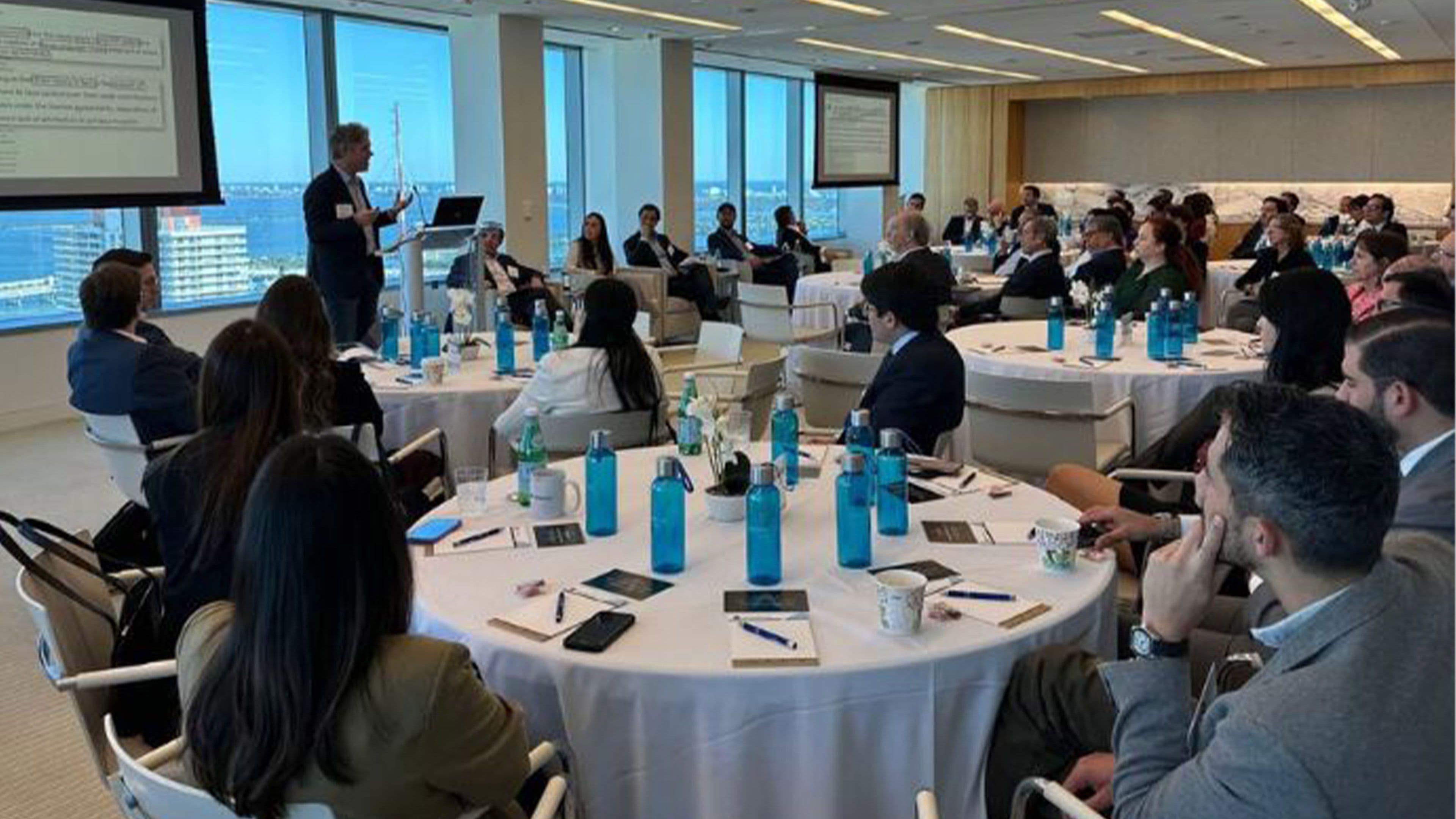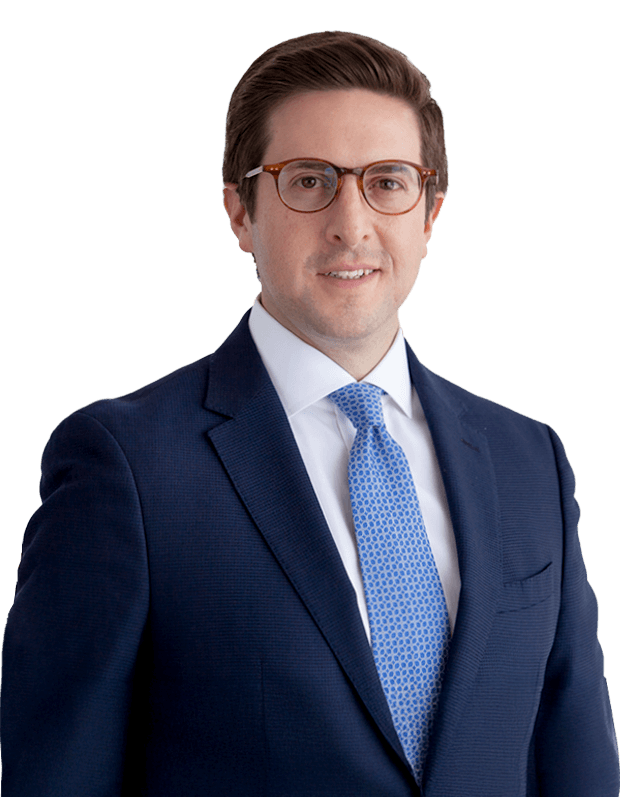News
2024-12-12
The generational demands law firms must address to retain talent.

In a revealing session dedicated to the attraction, retention, and management of talent in law firms, held during the LexLatin Summit 2024 on November 22, a new landscape emerged that is shaking the foundations of traditional legal practice: the new generation of lawyers is rewriting the rules of the game, and law firms face the challenge of reinventing themselves or risking the loss of top talent in an increasingly competitive and global market. How to address these new conditions was one of the central themes of the event, held at the offices of Greenberg Traurig in Miami's financial district, organized in strategic partnership with vLex.
From the Pandemic Shock to Transforming the Traditional Model
The pandemic acted as a catalyst, exposing deep structural vulnerabilities in the traditional legal practice model. Law firms were forced to adapt quickly, as Antonio Villa Berkemeyer of BKM|Berkemeyer described:
"We faced a very complicated situation in our firm because we were used to having everyone in the office. Our office was not prepared for remote work. By the end of March that year, we realized we needed to make some changes and act quickly. We had to evolve technologically and consider implications like data protection, client communication, and the future of the business."
However, what began as a forced adaptation revealed unexpected opportunities. María Fernanda Mierez of Beccar Varela observed that the pandemic actually benefitted retention in her firm:
"The experience of working from home highlighted the value of well-being, which all our associates greatly appreciate. I think the challenge now is creating and transmitting our firm’s values so associates feel motivated to return to the office while also feeling comfortable."
Indeed, this forced transformation in 2020 led firms to fundamentally rethink their work models and organizational culture.
The current challenge, as Francisco Arce of Carey noted, goes beyond remote work:
"At Carey, we have implemented a flexible model over the past few years, allowing lawyers to work in the office three to four days a week. At the same time, we encourage younger lawyers to come in daily—not because it makes them better lawyers or to learn more about the profession, but to absorb the firm's culture. You can't learn culture through a screen."
This observation highlights a fundamental tension for law firms: maintaining a strong corporate culture while adapting to new work modalities.
A New Generation Redefines 'Professional Success'
The most profound shift lies in the mindset of new lawyers, who are openly questioning the traditional path to partnership. Mierez articulated this transformation clearly:
"This new generation values change, unlike us, who wanted to build a lifelong career at our firms. Beyond the benefits we can offer, I believe our talent will eventually want to switch jobs. Not just move to another firm, but experience different lifestyles. They tell us during interviews—they’re very honest—they might leave and don’t want a long-term career. So our main challenge is to understand this, accept this reality, and ensure they leave feeling positive about their time with us."
Villa Berkemeyer expanded on this, highlighting how the competition for talent has evolved:
"Now you compete with firms worldwide. For instance, you might develop great talent in Paraguay, but they could pursue a master’s degree at a prestigious university and seek opportunities in Miami. It’s hard to retain talent. Moreover, they’re not willing to follow the path to partnership. They tell you, ‘I see partners working 14-16 hours a day, barely seeing their families. It’s a tough road to partnership.’”
Daniel Robalino of Robalino addressed the generational gap:
"Between my generation and others, there are differing visions of life. (…) While we all want to thrive professionally, my generation isn’t willing to give up many things like friends, family, and hobbies."
This underscores a critical point: the new generation seeks a different balance between professional success and personal fulfillment.
Arce highlighted a critical observation about career expectations:
"Young lawyers see peers with four or five years in the firm and view them as growth examples. But after ten years, some may not become partners. When young lawyers realize this, they reasonably ask: ‘What’s in it for me, then?’ You must convince them anew that the journey is worthwhile."
This reality is forcing firms to rethink their career structures and professional development models.
Innovation in Talent Retention and Development
Firms are responding with innovative strategies beyond traditional incentives. Robalino described an approach focused on autonomy and individual responsibility:
"We encourage every professional to pursue their personal goals within the firm’s strategy. For example, if someone is passionate about technology or pro bono work, we support them and provide tools to pursue those goals, as long as they align with the corporate strategy."
Other firms combine professional development with social integration. Arce detailed an innovative initiative:
"We have a legal education committee mandatory for new lawyers during their first two years. This committee uses a fictional case that spans various practice areas, simulating challenges lawyers must navigate."
Mierez shared how her firm fosters holistic lawyer development:
"We launched initiatives inspired by associate ideas, such as producing a play for the entire firm. While fun, it helped develop public speaking skills and encouraged integration. Outdoor activities also promote inclusion and useful skills for the profession."
The Challenge of Diversity and Inclusion in Latin America
The discussion on Diversity, Equity, and Inclusion (DEI) revealed both progress and persistent challenges. Mierez mentioned a pioneering initiative:
"We started working with people with disabilities, not just in administrative roles but also as lawyers. It was challenging to ensure efficiency and quality while making them feel comfortable. (…) We've worked on a protocol for incorporating people with disabilities into law firms, which we plan to present to Buenos Aires’ mayor."
Villa Berkemeyer highlighted a paradoxical reality:
"In law schools in our country, probably 70% of graduates are women. Yet, during their careers, many leave due to motherhood or family reasons. Our key work is supporting working mothers."
Arce emphasized a merit-based approach:
"At Carey, we have a significant number of LGBT+ lawyers. This wasn’t a set goal; we focus on merit. By centering on merit, you naturally create diverse teams because talent exists everywhere."
The Future: Technology and Continuous Adaptation
The debate concluded with an optimistic outlook on AI as a transformative force. Mariano Batalla of Alta in Costa Rica noted:
"It’s fantastic to have technological tools that not only optimize efficiency and profits but also enhance diversity within firms."
The discussion underscored that Latin American firms’ future hinges on adapting to these realities: mobile talent, diverse expectations, and balancing professional excellence with personal fulfillment. The traditional model, centered on linear paths to partnership, is giving way to a more nuanced reality.
The ultimate challenge is not just modernizing processes or adopting technology but transforming legal culture at its core. Creating spaces where professional excellence coexists with purpose and fulfillment will define the future of legal practice in Latin America.
Source: LexLatin
RELATED PROFESSIONALS
